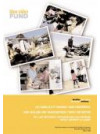Around one in five people living in New Zealand were not born here and around 20 percent of people born here are believed to be living overseas.
This means that most people in New Zealand will at one time or another have links to family living overseas and can experience the isolation, lack of support, financial pressures and other difficulties that can result from this separation.
Les Familles et Whānau sans Frontières — New Zealand and Transnational Family Obligation was carried out by a team of researchers at Massey University under the project leadership of Dr Neil Lunt.
The study shows how the ethnicity of New Zealand's population has changed over the years, with a growing number of migrants from Asia, the Middle East, sub Sarahan Africa and more New Zealand-born people with a Pacific heritage. In a little over 15 years it is estimated there will be a million people living in New Zealand who are of Pacific or Asian ethnicity.
Purpose
This review sought to explore the phenomenon of transnational families in greater detail, and to
address a number of interrelated questions focused around New Zealand’s transnational families:
- Why do transnational families form?
- How do transnational families form?
- What do transnational families look like: their size, geographical dispersal, and cross-country linkages?
- When do transnational families form in life cycles, family cycles, and generation cycles?
Methodology
The review sought to be wideranging and exploratory, drawing on the rich national and international scholarship that exists, and 4 Blue Skies Research utilising a multi-disciplinary approach in describing trends and exploring concepts around transnational families.
A range of national and international literature was reviewed using search engines and databases, including completed and ongoing research programmes undertaken by the Migration Research Group at the University of Waikato, the New Settlers Research Programme at Massey University, and the New Zealand Immigration Service’s own research programme.
The study also undertook scoping discussions with a small number of key stakeholders and organisational spokespeople (such as organisations working with older people and organisations advocating for migrant groups) to help outline emerging issues that, up to this point, were not well understood. Finally, but no less importantly, there were countless informal – and informative – conversations with friends, colleagues and acquaintances currently living transnational family lives. The (strictly hypothetical) scenarios used in Section Six are informed by these very real circumstances that individuals highlighted.

